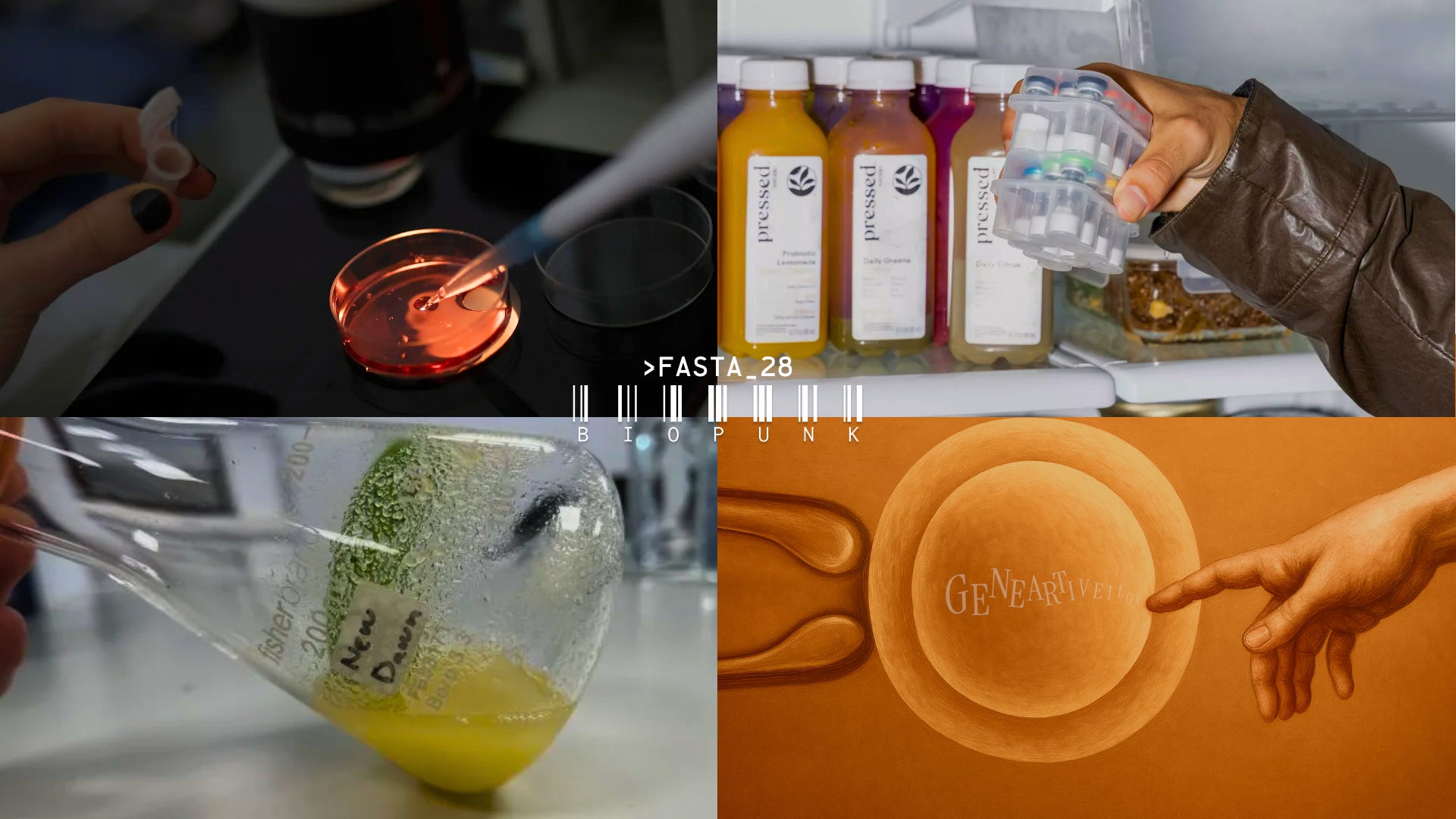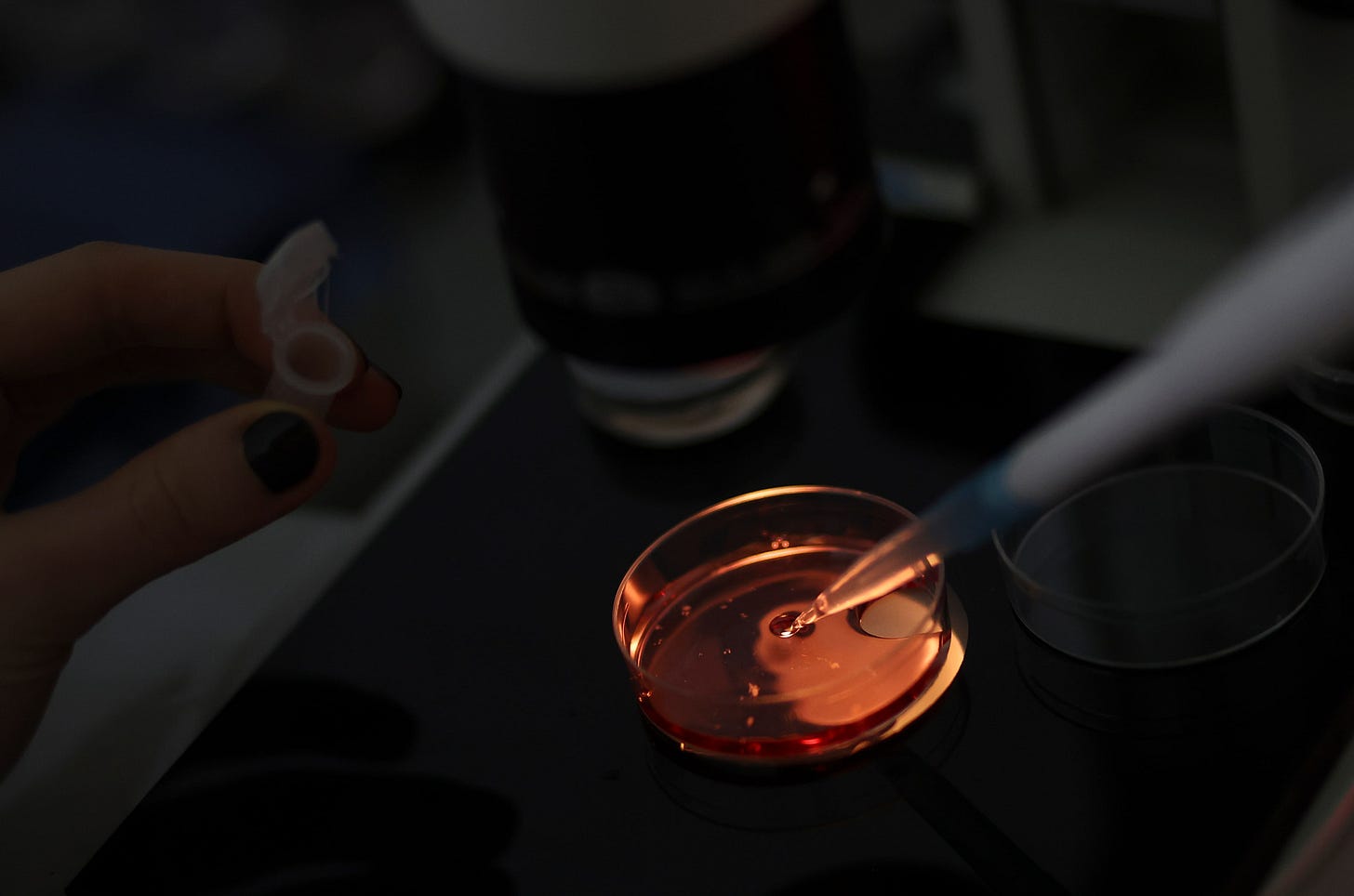>FASTA_28
Argentinian and Korean biotech; Lab-grown teeth, wood, and blood; The Chinese peptides black market; Persephone Biosciences; A new biotech unicorn; Google's A-Life; Does sex exist on Mars?
>FASTA: weekly short reads of the global biotech ecosystem | Papers and patents, acquisitions and bankruptcies, biotech philosophy | Read in under 5 min | Follow on LinkedIn, X, YouTube, and Instagram! | Versión en Español
Pilgrim is proud to sponsor >FASTA! They’re building the next generation of military medicine for rapid wound healing and pathogen detection—advancing solutions from frontline emergencies to everyday healthcare.
1. Argentina builds with biology 🐎
Gabriel Vichera was doing his PhD on cloning, IVF, and genetic modification of bovines at the University of Buenos Aires when he saw a single polo mare clone be sold for nearly a million dollars at an auction, right there in the capital of polo: Argentina.
He set out to found Kheiron Biotech the next year and by 2017, before the first CRISPR babies were born in China, the team had created nine genetically modified horse embryos. Their initial backer, Daniel Sammartino, is the founder and CEO of Proinvesa, a group of biotechnology, pharma and veterinarian startups based in Argentina.
The horses they unveiled a few weeks ago were CRISPR’d to inhibit the myostatin gene and thus, have a better performance in polo. Today, the company sells horse clones at an average price of $40,000 USD per clone, apart from offering stem cell treatments and gene banking.
2. Enveda becomes a unicorn 🦄
Enveda has built the world’s largest library of plant-derived molecules linked to diseases, symptoms, and therapeutic potential. By combining mass spectrometry with proprietary LLMs, they can analyze tens of thousands of molecules at a time, instead of just one.
Their dermatitis and asthma candidate has passed phase 1 in clinical trials, and they have twelve other preclinical candidates for indications such as IBD and obesity. Their recent $150M USD Series D brings their total funding to $517M and gives them a unicorn status.
3. Cultivated wood 🪵
In 2024, New Dawn Bio grew wood directly from plant cells under controlled lab conditions, without growing a whole tree, at Wageningen University. This month, they secured a €1.4M Eurostars grant to advance their research at the Luxembourg Institute of Science and Technology.
Keep reading with a 7-day free trial
Subscribe to Biopunk to keep reading this post and get 7 days of free access to the full post archives.





